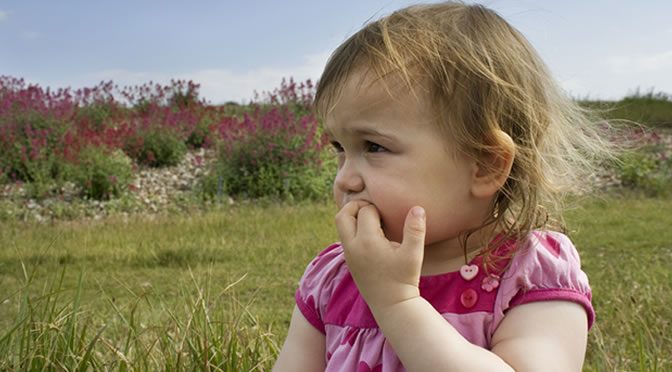Those who bite their nails or suck their thumb during their childhood can have an advantage.
A new study has found that children with these bad habits have less risk of being allergic to such things as grass, airbone fungi, house dust mites, horses, dogs and cats.
The explanation is based on the idea that the immune system in children can get stronger by contact with some germs.
Professor Malcolm Sears, co-researcher of this study, said:
“Our findings are consistent with the hygiene theory that early exposure to dirt or germs reduces the risk of developing allergies.
While we don’t recommend that these habits should be encouraged, there does appear to be a positive side to these habits.”
The theory is that exposure to microbes and germs increases in those who had the common childhood habits of nail-biting and thumb-sucking.
As a result this will influence the body’s immune system and minimise the development of allergic reactions leading to atopic sensitisation and allergic diseases.
This was tested among 1,000 New Zealand children aged 5,7, 9 and 11, some of whom were nail-bitters or thumb-suckers.
The allergic reactions was measured by skin-prick test at age 13 and 32.
The research showed that children who were nail-biters or thumb-suckers were at a lower risk of atopic sensitization in their childhood and adulthood.
However, the study didn’t find any affect of these childhood habits on hay fever or asthma.
This study was published in the journal of Pediatrics (Lynch et al., 2016).
Nail-biting image from Shutterstock
